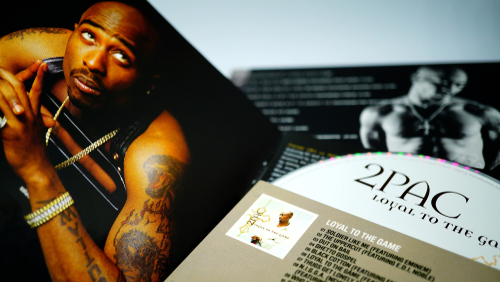Duane Davis, facing charges over the murder of Tupac Shakur, asserts his innocence amidst claims of legal misconduct. Citing a 27-year delay in prosecution and alleged constitutional abuses, Duane Davis, who is charged with planning Tupac Shakur’s 1996 murder, is requesting that the accusations against him be dropped.
Legal Challenge to Long-Delayed Prosecution
In a bold legal maneuver, Duane Davis, the man accused of masterminding the 1996 assassination of iconic rapper Tupac Shakur, is pushing for the dismissal of charges against him. Davis’s attorney, Carl Arnold, has filed a motion in Nevada District Court, citing “egregious” constitutional violations stemming from the 27-year delay in bringing the case to trial.
The attorney representing Duane “Keffe D” Davis has filed a motion to dismiss all charges related to the Tupac murder case. https://t.co/NCr44UqCED
— KOLO8 (@KOLO8) January 7, 2025
The defense’s strategy hinges on several key points, including the alleged lack of corroborating evidence and the prosecution’s failure to honor immunity agreements previously granted to Davis by authorities. These agreements, intended to protect Davis, now form a cornerstone of the defense’s argument for dismissal.
Duane “Keffe D” Davis is asking a Las Vegas judge to dismiss the charges accusing him of orchestrating the 1996 killing of Tupac Shakur.https://t.co/FWRXgCCwns
— Las Vegas Review-Journal (@reviewjournal) January 6, 2025
Prosecution Stands Firm Amid Challenges
Despite the defense’s assertions, Clark County District Attorney Steve Wolfson remains confident in the strength of the case against Davis. Wolfson maintains that the evidence is substantial enough to warrant a jury trial, where Davis’s accounts and the prosecution’s case can be thoroughly examined.
“The prosecution has failed to justify a decades-long delay that has irreversibly prejudiced my client,” Arnold said in a news release. “Moreover, the failure to honor immunity agreements undermines the criminal justice system’s integrity and seriously questions this prosecution.” – Attorney Carl Arnold.
Davis, originally from Compton, California, was arrested in September 2023 near Las Vegas. He has entered a plea of not guilty to the charge of first-degree murder. The case against him alleges that he orchestrated the shooting that resulted in Shakur’s death and wounded Marion “Suge” Knight following a brawl at a Las Vegas casino.
Background of the Case
The shooting is believed to have its roots in the fierce rivalry between East Coast Bloods and West Coast Crips for dominance in the “gangsta rap” scene of the mid-1990s. In a 2019 memoir, Davis described obtaining a gun and handing it to his nephew, Orlando “Baby Lane” Anderson, though he did not explicitly identify Anderson as the shooter.
“I had publicly said, ‘I don’t think that there will ever be an arrest in this,'” – Greg Kading.
Shakur succumbed to his injuries a week after the shooting at the age of 25. Knight, who was driving the car Shakur was in at the time of the attack, survived but is currently serving a prison sentence for an unrelated incident. Anderson, who denied any involvement in Shakur’s death, died in 1998. The other two men believed to have been in the car during the shooting are also deceased.
Challenges in Evidence Collection
Complicating matters for the prosecution is the fact that police do not have possession of either the gun or the vehicle used in the shooting. This lack of physical evidence adds another layer of complexity to an already challenging case, potentially bolstering the defense’s argument for dismissal.
As the legal battle unfolds, the case continues to captivate public attention, raising questions about the nature of justice and the challenges of prosecuting decades-old crimes. The outcome of this motion could have significant implications for Davis and the legacy of one of hip-hop’s most influential figures.
Sources:
https://nymag.com/intelligencer/article/greg-kading-tupac-shakur-murder-duane-davis.html

